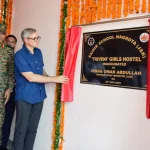In the practice of modern medicine, the humble laboratory test has become the invisible foundation of diagnosis, treatment, and prevention. From a simple blood count to complex molecular assays, nearly 70% of medical decisions worldwide are influenced by laboratory results. Yet, in Kashmir—and across much of the developing world—this foundation is shaky. Accuracy and reliability, the two most important key performance indicators (KPIs) of a laboratory, remain compromised. Without these, a test is not merely meaningless; it is dangerous.
The Fragile Trust in Lab Reports
When a patient walks into a hospital or clinic, he or she places unconditional trust in the laboratory slip handed across the counter. Numbers and graphs on that paper carry life-altering consequences. A wrongly reported hemoglobin count may push a woman into unnecessary blood transfusion. An inaccurate blood sugar level may start a lifelong insulin regimen prematurely. A false negative for hepatitis or HIV could condemn dozens more to risk.
Despite such high stakes, the reality is sobering: in too many of our laboratories, quality control is either absent, sporadic, or treated as a bureaucratic ritual rather than a scientific discipline.
Where the System Fails
The failure is not about machines alone; it is systemic.
No Internal Quality Control (IQC)
Standard practice demands that every batch of tests should be run with control samples—known values that check whether the system is reporting accurately. Many labs skip this step to save cost or time.
Rare External Quality Assurance (EQA)
Globally, labs are expected to participate in external benchmarking programs, where their results are compared with reference labs. In Kashmir, participation is minimal, and where it exists, follow-up on errors is negligible.
Calibration is a Casualty
Instruments need periodic calibration against reference standards. Instead, machines run unchecked for months, reagents are used beyond expiry, and errors accumulate silently.
Human Resource Deficit
Technicians are often undertrained, underpaid, and overburdened. Qualified clinical pathologists who should supervise labs are frequently absent, replaced by business owners more focused on margins than on medicine.
Regulatory Vacuum
Food safety has at least begun to get public attention after the rotten meat scandal. But who speaks about lab safety? Who ensures that a laboratory in a district town follows the same accuracy protocols as a premier medical college?
The Human Cost of Inaccuracy
The consequences of poor laboratory standards ripple far beyond the individual test.
- Misdiagnosis: A false tuberculosis test can either condemn a healthy person to months of toxic drugs or allow an infected person to spread the disease unchecked.
- Financial Drain: Patients, already impoverished, pay for repeat tests and unnecessary treatments.
- Loss of Trust: When families realize results from one lab differ drastically from another, suspicion grows—not only of labs but of medicine itself.
- Public Health Blindness: Without reliable data, health authorities cannot track epidemics, evaluate interventions, or plan resources effectively.
In Kashmir, where healthcare is already strained by conflict, underfunding, and poor infrastructure, this silent erosion of laboratory reliability compounds every other crisis.
Global Standards We Ignore
The world has already set benchmarks. The ISO 15189 standard defines competence and quality requirements for medical laboratories. Accreditation bodies like NABL (National Accreditation Board for Testing and Calibration Laboratories) in India enforce these norms. A lab with accreditation is expected to have:
- Documented quality management systems.
- Internal and external audits.
- Continuous staff training.
- Traceable supply chains for reagents and equipment.
Yet, only a handful of labs in Kashmir—and indeed in most LMICs—pursue or maintain such accreditation. Many rely on local licenses that focus more on infrastructure than on scientific rigor.
Why Quality Control is Non-Negotiable
Healthcare is often discussed in terms of hospitals, doctors, and drugs. Laboratories remain the neglected cousin—seen as a supporting act rather than the lead performer. But no surgeon, physician, or public health planner can function with confidence unless the lab report is trustworthy.
- A cardiologist cannot titrate drugs if cholesterol levels fluctuate wildly between labs.
- An oncologist cannot decide chemotherapy if tumor markers are unreliable.
- A policy maker cannot estimate disease burden if diagnostic data is inconsistent.
In this sense, quality control in labs is not a luxury—it is the very oxygen of modern healthcare.
Kashmir’s Unique Risk
The risks are sharper in Kashmir. Conflict, disrupted supply chains, and uneven governance create conditions where shortcuts flourish. Private labs multiply rapidly in towns and villages, often without oversight. Patients, already anxious, are left to choose based on price or proximity rather than reliability.
The irony is stark
We now have cutting-edge machines in some centers, but no culture of quality assurance. A sophisticated auto-analyzer without quality control is like a jet plane flown without a pilot—it looks impressive until it crashes.
The Way Forward
The crisis demands urgent and multi-pronged action:
- Mandatory Accreditation: All labs, big or small, must be required to pursue NABL or equivalent accreditation within a fixed timeframe.
- Regulatory Audits: Just as drug inspectors visit pharmacies, specialized laboratory auditors must regularly check accuracy records, calibration logs, and quality-control practices.
- Public Transparency: Labs should be required to display accreditation status, participation in external quality assurance, and last audit date—just as restaurants must show hygiene ratings.
- Training & Staffing: No lab should function without a qualified pathologist in charge. Training programs for technicians should be continuous, not one-time.
- Penalties for Negligence: Just as food adulteration attracts legal action, false or negligent lab reporting should invite strict penalties, including suspension of licenses.
- Patient Education: The public must be taught to demand accreditation and authenticity. A lab slip is not just paper; it is evidence of health or disease.
Beyond Technology: Restoring Faith
Laboratory science is not merely about machines and chemicals; it is about trust. A single inaccurate report can destroy a life, but a culture of accuracy can save thousands. As a society, we can no longer afford complacency.
We have debated rotten meat, corrupt officials, and failing institutions. It is time to extend the same vigilance to laboratories—the silent backbone of healthcare. Accuracy and reliability must be treated not as technical jargon, but as a moral commitment to truth, to safety, and to human dignity.
Every society is judged by how it safeguards its weakest. In medicine, the weakest link today is not the lack of technology, but the absence of rigorous quality control in laboratories. The solution is not far-fetched. The standards exist. The technology exists. What is missing is the will—political, professional, and societal.
If Kashmir wishes to restore faith in its healthcare, it must begin where medicine truly begins: with the accuracy of a laboratory test. For only then can we say that the numbers on a report are not numbers alone, but reliable guides to healing and hope.
(Author is A Healthcare policy analyst, Certified Expert in Healthcare Quality control. He can be reached at: [email protected])








